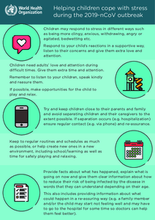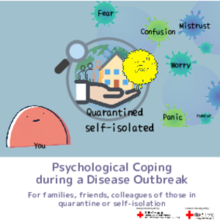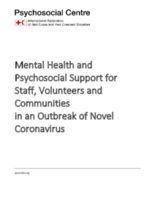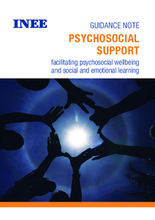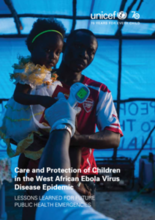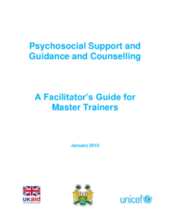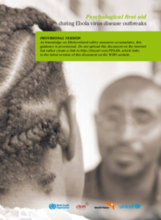This section includes resources and tools for mental health and psychosocial support during the COVID-19 pandemic.
Displaying 51 - 60 of 65
On this webpage, ISPCAN has gathered resources on how to navigate through the COVID 19 pandemic.
This one page leaflet from the World Health Organization offers advice to parents and caregivers on how to help children cope with stress during the COVID-19 pandemic.
This document features mental health and psychosocial support messages developed by Hong Kong Red Cross for families, friends, colleagues of those in quarantine or self-isolation.
This free collection of articles includes relevant psychological research published across the APA Journals portfolio that are relevant to the topic COVID-19.
This briefing note provides background knowledge on the MHPSS aspects related to nCoV and suggests MHPSS activities that can be implemented.
This module outlines 3 hours (180 minutes) of training activities and materials related to psychosocial support (PSS) and social and emotional learning (SEL) in emergency contexts.
This INEE Guidance Note encourages more intentional and consistent implementation of practical, good-quality psychosocial interventions on the education frontlines by teachers, education administrators, parents, counselors, peers, ministries, and other education personnel.
This report examines three Ebola-affected countries – Liberia, Sierra Leone, and Guinea – to analyse the degree to which the response was successful in addressing the scale and unique nature of the child protection situation that arose due to the epidemic.
This manual provides guidance on psychosocial support training in light of the Ebola outbreak in Sierra Leone.
This guide focuses on psychological first aid, which involves humane, supportive and practical help to fellow human beings suffering serious crisis events. It is written for people who can help others experiencing an extremely distressing event.

